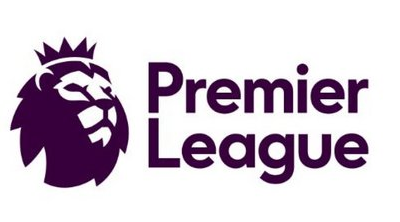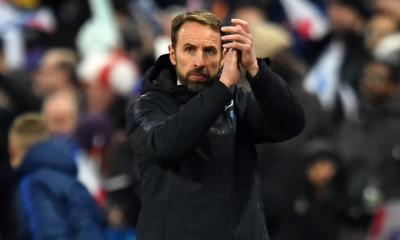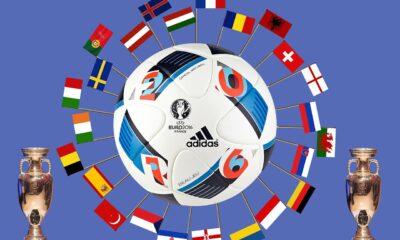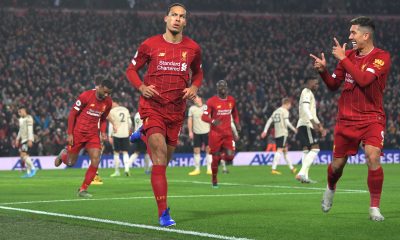Football
How the Nations League ended
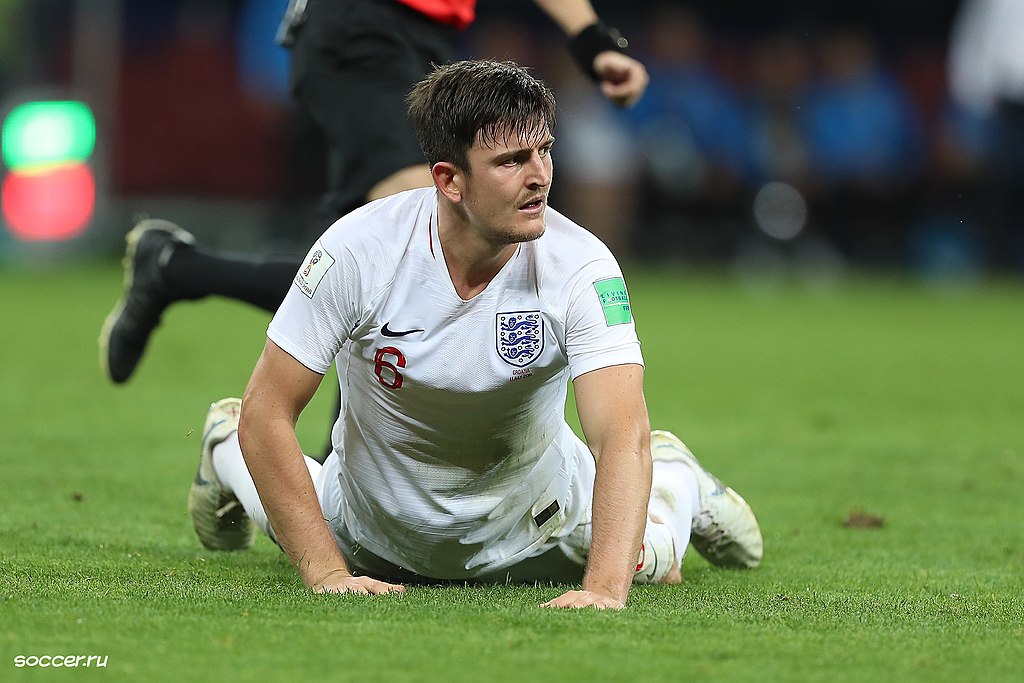
The Nations League is over for all of the Home Nations.
Let’s be honest, many fans aren’t to bothered about how the Nations league ended. To many, The Nations League is a worthwhile addition to an international calendar, once heavily criticised for its vast amount of pointless, uncompetitive friendlies.
To others, its a meaningless UEFA creation that overloads the football fixture list, causes more injuries and means we lose a weekend of Premier League football. Liverpool fans in particular, may have more reason than most to think the latter!
Nevertheless, it appears to be here to stay. It’s been a week since the group stages of the second ever Nations League came to an end. England, Scotland, Wales and Northern Ireland brought their campaigns to a close with varying degrees of success. Here’s a round-up of how the Nations league ended for each side and what, if anything, they learned.
How the Nations League ended:
England
Any hopes that Gareth Southgate’s side had to reach their second successive Nations League Finals were over before their 4-0 win against Iceland. The fixture at Wembley on Wednesday was already a ‘dead rubber’ as England had already been consigned to a third place finish in their A2 group.
Despite this, Southgate fielded a strong side against their already relegated opponents and eased to victory thanks to goals from Declan Rice, Mason Mount and a brace from Phil Foden. It was another game with notable absentees for England. Marcus Rashford, Raheem Sterling and Trent Alexander-Arnold were among the names unavailable to Southgate.
Having said that, the replacements certainly stepped up. The quality of the performances all over the pitch will give the manager plenty to think about before the World Cup Qualifiers in March.
It was the penultimate game of the group against Belgium that ended England hopes of Nations League glory. A comfortable 2-0 victory for the highest ranked team prompted a few question marks for the England manager.
The wealth of attacking talent already available. The quality of the attackers to come back. Yet the 3-4-3 system favored by the manager has normally included up to seven defensive players. With so many options, and a manager not afraid of shifting formations.
The familiar problem of how to play England’s best players in one team, is perhaps the most important. Not to mention the loyalty shown to certain players who aren’t in their greatest form.
Signing off in style ?
Well done, #ThreeLions!
— England (@England) November 18, 2020
Scotland
In truth, fans around Scotland probably weren’t that bothered about how the Nations League ended. Not after clinching a Euro 2020 place with a penalty shootout victory over Serbia the week before, their first major tournament in 22 years.
The final group B2 games against Slovakia and Israel lacked the same spark and importance. In reality, the Scots went into Matchday 5 and 6 with more to play for than most. They were unbeaten in the first four games of the campaign. Coming off the back of three consecutive victories. Promotion from the group was a real possibility.
Unfortunately, they ended the international break in disappointing fashion. First, a 1-0 defeat away at Slovakia sent Steve Clarke’s side, who had made eight changes from the victory over Serbia, into Matchday 6 needed to match Czech Republic’s result. Despite the defeat, a promising performance and the sight of Scotland at the top of the table gave cause for optimism.
Israel, who themselves were in a fight against relegation to League C, had other ideas. Manor Solomon’s thumping finish, just before half time, ended up being enough to consign Clarkes side to a second successive 1-0 defeat. Ending Scottish hopes of Nations League promotion and a potential World Cup play-off, further down the line.
What could have been a perfect week for the Scottish National Team, ended up being a historic week. Yes, they finished the international break on a whimper. But securing qualification to their first major tournament in over two decades, and setting up a clash at Wembley against old rivals England in the process was the priority.
A massive achievement for Steve Clarke and plenty to look forward to next year.
Good evening.
Just a quick reminder that we have qualified for UEFA #EURO2020.#NoScotlandNoParty pic.twitter.com/yySbGQpXAE
— Scotland National Team (@ScotlandNT) November 13, 2020
Wales
Leading their group by a single point, Wales were in the driving seat going into the final two fixtures. Without Manager Ryan Giggs who, along with the FAW, mutually decided to step back from International duty following personal allegations. Assistant manager Robert Page took charge of Wales for home games against Republic of Ireland and Finland.
Following a 0-0 draw in Dublin, a similarly lack luster encounter ended in a 1-0 victory for the home side. David Brooks scoring the only goal of the game, heading home a Gareth Bale cross on 66 minutes.
Victory in Cardiff stretched Wales’ unbeaten run to 10 games and maintained their single point lead at the top of the table over Finland. A Finland side who they welcomed to Cardiff a couple of days later.
The final group game against Finland was a simple winner takes all clash, with a draw for the home side also being enough for promotion. In truth, the turning point in the contest came just 12 minutes in, when Jere Uronen was shown a straight card following a last man foul on Harry Wilson.
17 minutes later, it was Wilson who opened the scoring against the now ten men of Finland, as he slotted home a Gareth Bale through ball. The win was then pretty much sealed just after half time when Dan James doubled the lead with a 20 yard stunner. Finland managed to pull a goal back through Teemu Pukki, dashing hopes of a fifth successive clean sheet for Wales.
A Kieffer Moore header, six minutes from time, put the result beyond doubt and secured their promotion to the top tier of the Nations League in 2022.
Wales sealed promotion to League A of the UEFA Nations League after seeing off 10-man Finland 3-1 at the Cardiff City Stadium…????????
— Sky Sports Football (@SkyFootball) November 18, 2020
Northern Ireland
It was an international break to forget for Ian Baraclough and his side. Like Scotland, all focus was on their Euro 2020 play off match, a home tie against Slovakia. Unfortunately for Northern Ireland, it was not the night they qualified for a second successive European Championship Finals.
A painful night in Belfast ended in a 2-1 defeat. Michal Duris coming off the bench to score the winner in the 110th minute for Slovakia.
Following on from a draining evening, Northern Ireland needed to turn their attention to avoiding relegation in the Nations League. Three points adrift of Romania who they faced in their last fixture.
Before this however, more heartbreak was to follow for Baraclough’s side against Austria. An Adrian Grbic goal, three minutes from time, consigned them to a 2-1 defeat. A harsh blow after originally taking the lead, thanks to a Josh Magennis goal fifteen minutes from time.
Any pressure on Northern Ireland for their final game against Romania was lifted after Norway were unable to fulfil their penultimate Nations League fixture against them. UEFA consequently awarded three points to Romania, consigning Northern Ireland to relegation.
A second successive campaign at the bottom of their group. A frustrating 1-1 draw brought the campaign to a close. Another lead surrendered in the final 10 minutes of time. After two campaigns, they remain winless in the Nations League and end with just two points this time around.
It leaves Baraclough, who only took charge in June, without a win (in 90 minutes) in his first eight games. Plenty of work to do for the former under 21 boss.
We hope you enjoyed the article ‘How the Nations League ended.’ How well do you think England and Scotland will do at the Euros next summer? Let us know!
Read more on football here:
-

 News3 weeks ago
News3 weeks agoThe Best Male Tennis Players of All Time
-

 Football3 weeks ago
Football3 weeks agoPlayers with the most goals in a Premier League season
-

 Football3 weeks ago
Football3 weeks ago10 of the most underrated footballers in the world right now
-

 News3 weeks ago
News3 weeks agoThe Fastest Rugby Players Ever
-

 Football3 weeks ago
Football3 weeks agoChelsea’s Possible Lineup For Next Season
-

 Football3 weeks ago
Football3 weeks agoWho is the Fastest Football Player in the World?
-

 Football3 weeks ago
Football3 weeks agoThe Best Penalty Takers of All Time
-

 Basketball4 weeks ago
Basketball4 weeks agoThe 5 Biggest NBA trades so far this off-season


